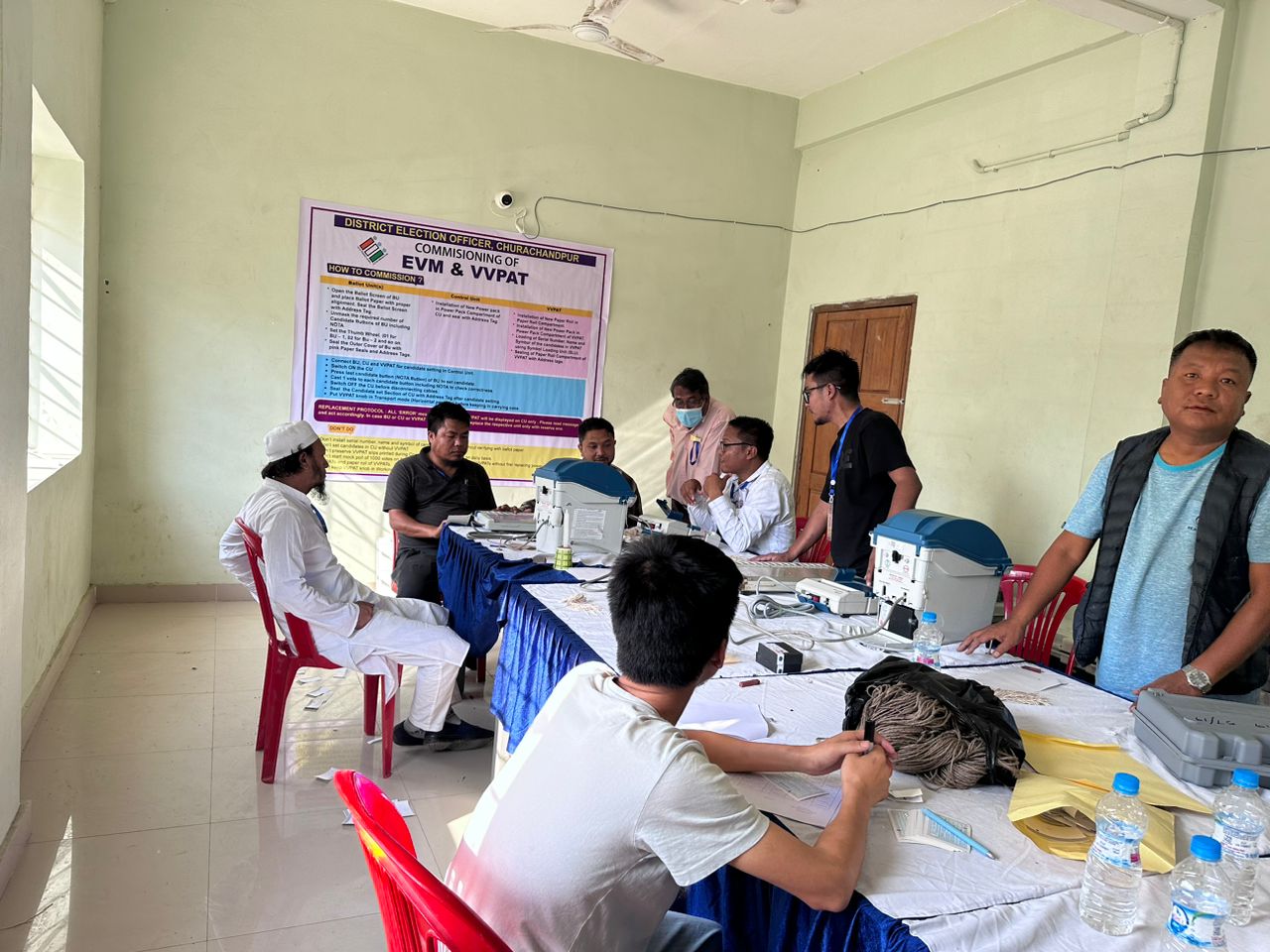
The Lok Sabha Election 2024 is barely a week away from now. Normally, a candidate or two with outright endorsement from obvious civil bodies would have emerged by now. However, with our political movement facing uncertainty and the government being seen as not bothered in the least bit, we are stuck between a rock and a hard place.
That a unanimous decision by civil societies regarding the election is yet to be made public tells us the fractured state that we are in. In the midst, social media spaces are galore with discussions on the incentives to participate, or not, in the upcoming election.
In all these discussions, three strands of thoughts emerge. The first group of thought informs us that we should contest. The second cohort argued for a nuanced reading of electoral politics probably to reap some form of socio-political dividend. And thirdly, there are those who call for a symbolic Boycott.
For a community without adequate numbers to get a mandate and who also happen to be systematically targeted by the state, contesting the election at this time can give a semblance of normalcy that will be a politically reckless move. So, the first strand of thought is a non-starter. On this, our civil societies have taken the right call. The second argument, on the other hand, requires us to think. Its claim about weighing available options for a practical rationale has a reasonable dose of ‘real politik’ going on. Since we won't contest, whom, among the other candidates, should we pick? Probably, as some have argued, a candidate or party that will do no harm to our cause even if they will also do nothing for our cause. That way, a status quo will be maintained.
Curiously, this strand of thought has more representation from the older folks. Conversely, the demographic breakup here is fascinating if we look at the third strand of arguments and which age groups its major component is. The third strand of thought, which calls for Boycott, made its way into public consciousness when a group called ‘The Young Kuki’ on the 26th of March, last month, communicated its “formal declaration of Electoral Boycott” to the Chief Election Commissioner, ECI. While these greenhorns may have made the first plunge, every thinking person is being compelled to rationally capture the situation for the sake of the future. The question is, can an electoral Boycott really have an impact on our movement? Won’t strategic voting give us leverage going forward?
There have been many instances of Boycotting elections around the world. But most of these Boycott tend to emerge from opposition parties against a ruling dispensation. However, two election Boycott by minority ethnic groups may give us some understanding of the positive and negative impact on electoral Boycott. The 2019 Kashmiris’ election Boycott, for instance, did not provide much leeway in the effort to drum up support against the abrogation of article 370.
The political support behind the abrogation of article 370 and the bifurcation of the state into two Union Territories was massively in favour of the Indian state that a mere electoral Boycott was not enough to shatter public opinion. And, it failed to mobilise sufficient public support against the state. Even when the issue was finally resolved by the Supreme Court of India in favour of the Indian State, criticism was thrown mostly on why the Court did not give any time frame for the restoration of statehood to Jammu and Kashmir, which the government of India had promised.
The second, and more significant, electoral Boycott took place in Sri Lanka during the Presidential elections in 1988, 2005, and to some extent, in 2010. Of these, the 1988 election Boycott was noteworthy since the Sri Lankan state was at war with its Tamil population. As a minority at war against the state, the Boycott served as a powerful statement of Tamil grievances, particularly regarding state violence, discrimination, and human rights abuses. It drew international attention to the plight of Tamils and contributed to discussions about the need for a political resolution to the conflict.
However, the boycott also led to political isolation for the Tamil community in terms of formal representation and participation in mainstream Sri Lankan politics. By abstaining from elections, Tamil political groups risked marginalisation and limited influence in decision-making processes. This is unlikely to have any impact since our electoral leverage has been too minuscule to begin with.
The boycotts were part of broader political dynamics and strategies employed by Tamil groups, including armed resistance by organisations like the LTTE. Thus, the Boycott managed to send a symbolic signal across the world about the act of the state in abusing minority rights. It had strategic significance in sharing their grievances and making sure the world takes notice.
Although it didn’t have the desired impact that the symbolic Boycott intended to, a clear message was sent across in clear terms that state violence is a matter of existential threat for minorities.
As can be seen, the impact can be limited, no doubt. But the ability to gamble with our electoral patronage is, evidently, too abysmal to rely on. And, although the suggestion for strategic voting makes sense, obtaining a binding assurance seems uncertain at this time. In this scenario, although evidence of electoral Boycott and their positive impacts are mixed, a symbolic protest seems appropriate with all things considered.
On a more sobering note, the ability to discuss such concerning matters itself in civil spaces is a change that civic deliberations are no longer discouraged or halted by soi-disant stakeholders. As fellow victims, we all have an exclusive proprietorship in the future of our society.

The Hills Journal
K. Salbung, Churachandpur
Manipur-795128